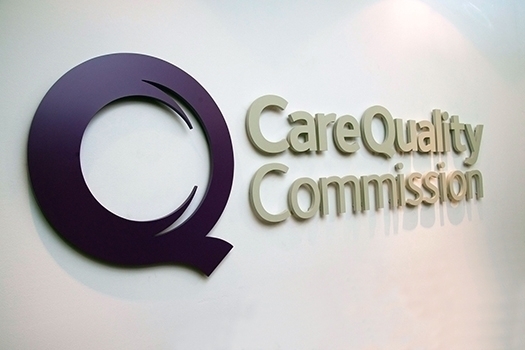CQC: Nearly half of private primary care services not providing safe care

Safety is the biggest concern when it comes to private primary care services, the CQC has revealed.
The new CQC report, which analysed the inspections of independent services, found just under half of consulting doctor services (32 out of 66) and slimming clinics (16 out of 38) did not provide safe care in line the relevant regulations.
Concerns were raised over inappropriate prescribing, failing to inform NHS GPs of decisions, and poor record keeping, the CQC said.
The latest report, published today, looked at private GP services, travel clinics, slimming clinics, circumcision clinics, allergy clinics, and clinicians registered with the General Medical Council who provide consultations and/or treatments.
It found:
- Just under half of independent consulting doctor services (32 out of 66 first inspection reports analysed) and slimming clinics (16 out of 38 first inspection reports analysed) were not providing safe care in accordance with the relevant regulations on their first inspection.
- Most providers (10 out of 14 independent doctor reports analysed) improved upon re-inspection. Among re-inspected slimming clinics, eight had shown some improvement.
- Almost a quarter of slimming clinics (nine of 38 first inspection reports analysed) were not meeting the regulations for effective care, with some found to be treating people with medicines not recommended by NICE or RCP. Inspectors found examples of appetite suppressants being prescribed to patients with a BMI lower than that recommended, or to patients with high blood pressure.
The report highlighted issues with the safety and efficacy of prescribing, especially in relation to high-risk medicines including opioid painkillers and antibiotics.
The document said: ‘Good clinical oversight and governance ensures that clinicians are prescribing appropriately. However, we found this was not always happening.’
It explained that sporadic care can lead to patients not disclosing all the necessary information, such as other conditions or current prescriptions.
In some cases, the report said patients may not disclose to a private doctor that they already have a prescription from their own GP, or that their NHS GP refused to prescribe a drug as it was ‘inappropriate or unsafe’.
‘This has implications for the safety of prescribing, specifically of high-risk medicines including opioid painkillers and antibiotics,’ the report said.
Prescribing of unlicensed or clinically ineffective medicines was also an issue.
‘We had concerns regarding prescribing medicines without a strong evidence base and prescribing unlicensed medicines. At a number of the services inspected, the prescriber had failed to inform patients that the medicine was unlicensed, or there was no clear documentation to support their decision to prescribe an unlicensed medicine.
‘Some people may choose a private consultation where an aspect of treatment is not available on the NHS. For example, we found that some slimming clinics were prescribing and supplying medicines that were neither clinically or cost effective,’ the report said.
Other concerns included referrals not always being made or recorded, and not sharing information with other clinicians caring for their patients, for example their normal GP.
The report said: ‘We found variation in both the level of information sharing between services and patients’ registered GPs, and providers’ awareness of why this was important to ensure safe and effective care and treatment, and to alert both parties to any safeguarding concerns.’
‘Referrals were not always made or recorded. We found that some services provided an “open” referral letter and relied on patients to give this to any consultant with a particular speciality for treatment, rather than taking responsibility to hand over their care by explicitly naming a specific consultant,’ it added.
Inspection of record keeping revealed further issues, with some patient records being kept in other languages.
The document said: ‘We saw variation in the quality, management and security of patient records: some lacked sufficient detail to provide an adequate and accurate record of consultations.’
‘We found a number of patient records were not kept in English and, more worryingly, some providers were still working with paper records,’ it added.
CQC general practice deputy chief inspector and independent providers lead Ursula Gallagher said: ‘Too often we saw poor prescribing practice and providers with a limited awareness of their responsibilities – not just to their patients but to the wider healthcare system.’
‘Everyone providing these types of services has a legal responsibility to offer safe, high-quality care that not only meets the needs of the people using it, but also meets the legal requirements that exist to protect patients. Where this isn’t the case and we see risks to patient safety, we will not, and have not, hesitated to stop providers from operating,’ she added.
RCGP chair Professor Helen Stokes-Lampard said: ‘Regardless of which sector a GP service is operating in, it is essential that it is held to the same high regulatory standards as the rest of the health service, in the best interests of patient care and safety.’
‘GPs and our teams take CQC inspections very seriously. It’s now important that in areas where some practices have been found not to be providing safe care, lessons are learnt and improvements can be made,’ she added.
BMA private practice committee chair Dr Shree Datta said: ‘We fully welcome this report. Healthcare professionals have a duty to provide safe and effective patient care irrespective of whether they are practicing in an NHS setting or the private sector.
‘It is reassuring to read that many services are meeting the necessary regulations in relation to patient care, if not more. It is crucial that services that are not delivering high quality care engage in improvement programmes to address concerns and look at learning opportunities as a priority.’
Portfolio careers
What is the right portfolio career for you?

Visit Pulse Reference for details on 140 symptoms, including easily searchable symptoms and categories, offering you a free platform to check symptoms and receive potential diagnoses during consultations.













